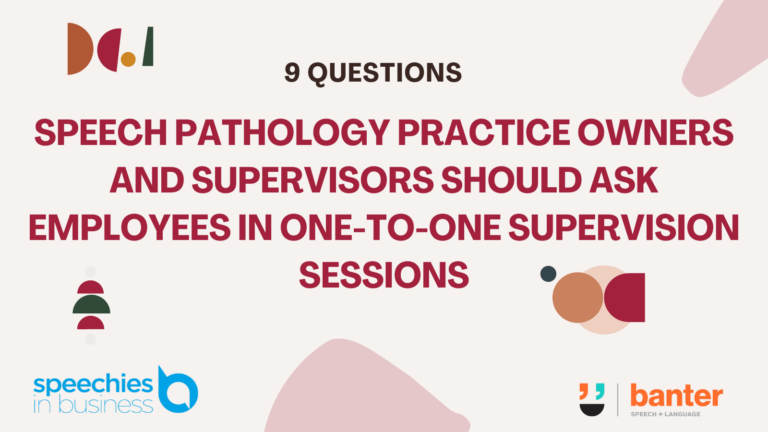Difficult professional conversations: tips to help control emotions
Many Speech Language Pathologists in private practice are people pleasers, overworked and under-resourced. Disagreements about priorities, caseloads, workloads and feedback are inevitable. They can feel threatening and stressful. When threatened, many of us switch to “fight or flight” mode, making it hard to think rationally and professionally. We can implement strategies to interrupt this physical…



